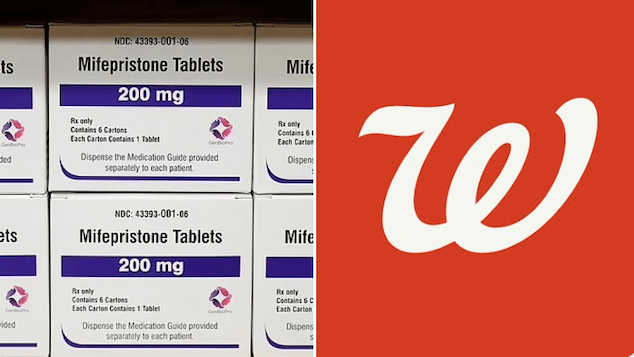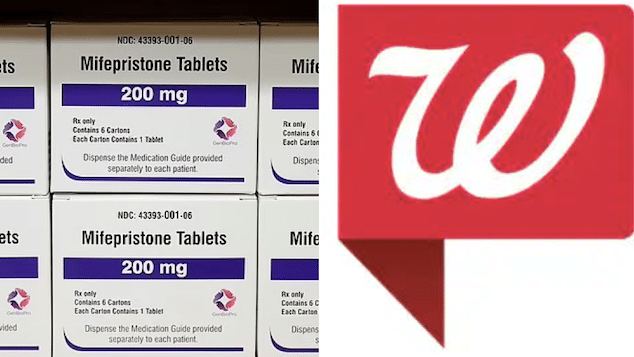
Walgreens agrees not to sell abortion pills in 20 Republican states (with active ingredient, Mifepristone) even where it’s legal as the retail pharmacy’s decision provokes criticism from activists amid concern about women’s legal reproductive rights and available options to terminate their pregnancy in the U.S.
A leading retail pharmacy in the U.S has pledged not to sell abortion inducing pills even in states where abortions are still legal.
The concession from Walgreens comes amid growing pressure from anti-abortion policy-makers and activists not to carry mifepristone, the drug which makes up half of the combination used to induce a medication abortion.
Walgreens responded to a letter sent last month by nearly two dozen Republican state attorneys general threatening legal action against the company if it stocked the medications.
The retailer which ranks as the nation’s second-largest retail pharmacy said it would not dispense abortion pills either by mail or at brick-and-mortar stores in those states. In some of the affected states, such as Alaska, Iowa, Kansas and Montana, using the pills for abortion is still legal.
The affected states include; Alabama, Alaska, Arkansas, Florida, Georgia, Indiana, Iowa, Kentucky, Louisiana, Mississippi, Missouri, Montana, North Dakota, Ohio, Oklahoma, South Carolina, South Dakota, Texas, Utah, and West Virginia.
Texas looming hurdle which could affect whole nation
The announcement comes just a couple of months after the Biden Administration updated a regulation to allow mifepristone, part of a two-drug cocktail to induce miscarriage, to be stocked and dispensed at pharmacies to pregnant people with a prescription.
GOP attorneys from these states sent letters to CVS, Rite Aid, Albertsons, Costco, Kroger and Walmart.
In a response, Danielle Gray on Walgreens’ legal team said: ‘As you know, to become certified by the FDA, participating pharmacies must satisfy a range of safety and risk mitigation requirements to dispense this drug.
‘At this time, we are working through the certification process, which includes the evaluation of our pharmacy network to determine where we will dispense Mifepristone and training protocols and updates for our pharmacists.’
Walgreens’ decision to hold off on stocking the drug constitutes yet another hurdle millions of women face in pursuit of a safe abortion.
In November, an anti-abortion group filed a federal lawsuit in Texas seeking to revoke mifepristone’s approval, claiming the FDA approved the drug 23 years ago without adequate evidence of safety.
A federal judge could rule soon. If he sides with abortion opponents, mifepristone could potentially be removed from the U.S. market.
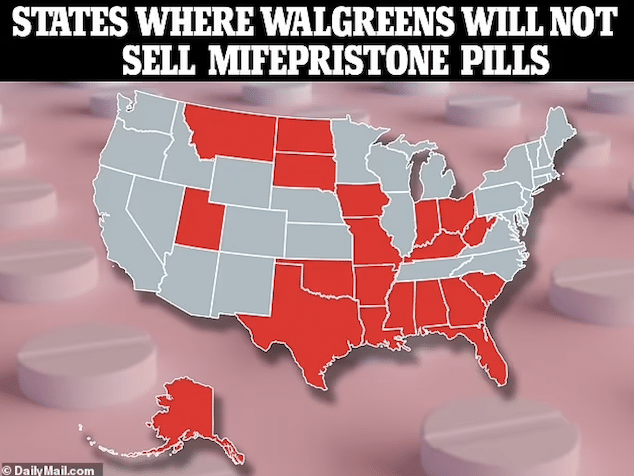
Walgreens caves, and won’t sell abortion pills in states where it is legal.
So much for putting a priority on the health of their customers.
Republicans across the country are doing everything possible to take away the right to reproductive freedom.
They must be stopped.
— Adam Schiff (@RepAdamSchiff) March 4, 2023
Future of women’s reproductive rights?
The appointed judge for the case, Matthew Kacsmaryk, is a devout conservative and Donald Trump appointee. He is expected to side with the pro-life activists.
Siding with the plaintiffs would significantly disrupt abortion access nationwide. It would effect access to an abortion even is states with no restrictions on the procedure.
It is likely that pro-choice advocates would appeal Kacsmaryk’s ruling.
The FDA has loosened restrictions on abortion-inducing medication in recent years.
The combination of drugs, mifepristone and misoprostol, became available at local pharmacies at the start of 2023 following an FDA directive.
Mifepristone is taken first to dilate the cervix and block a hormone needed to sustain a pregnancy. Misoprostol is taken a day or two later, causing contractions to empty the uterus.
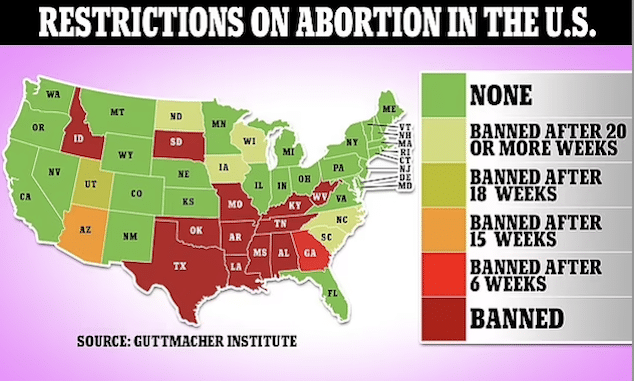
Divided reaction
Women can also be prescribed the pills via telemedicine and have it mailed to them by an out-of-state provider.
Per the Justice Department, the U.S. Postal Service can legally deliver abortion pills to people in states where the procedure is banned or restricted, saying that federal law allows the mailing of the pills because there is no way for the sender to know for certain whether the recipient would use them illegally.
Medication abortion has become the most commonly used method for terminating a pregnancy.
In 2020, the two-drug cocktail accounted for 54 percent of all abortions in the US, up from roughly 44 percent in 2019.
This is in part due to the rise of telemedicine and a general preference to stay away from doctors’ offices during the pandemic.
Walgreen’s decision not to sell abortion drugs in the GOP states led to divided reactions, with Students for Life spokesperson Kristi Hamrick cheered Walgreens’ decision.
‘This response indicates that pro-life concerns are being heard and that corporations are not rushing to take over the abortion business but are proceeding cautiously,’ she said.
Nevertheless pro abortion advocates expressed concern for those individuals who still had the legal right to abortion even in those states that Walgreen has now agreed not to serve.
Melissa Fowler, chief program officer at the National Abortion Federation, the professional association of abortion providers, voiced concerns over pharmacies not providing mifepristone in states where the abortion pills are legal.
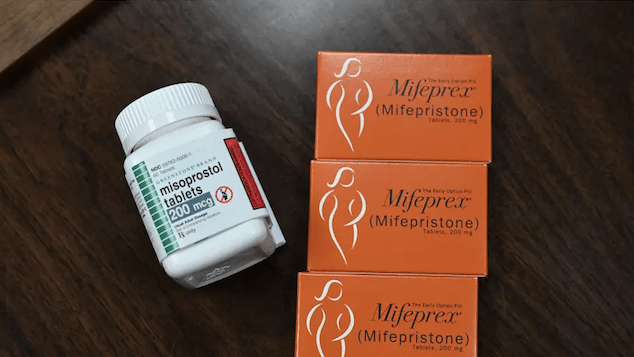
Costco, Walmart and CVS got the same letter from Republicans as Walgreens and they are apparently standing strong thus far. We should stay tuned but our money should go to retailers that don’t put politics before women’s health.
— Christopher Webb (@cwebbonline) March 4, 2023
Will other pharmacy retailers fold to GOP pressure?
‘When corporations give in to anti-abortion demands, patients are the ones who lose,’ she said in a statement. ‘Too many patients have already lost access to essential health care due to state abortion bans and we should not allow abortion opponents to continue playing games with people’s lives and denying them the care they need—especially in states where abortion remains legal. Every patient deserves to obtain abortion care in the time and place that’s right for them.’
The legal landscape for abortion has been in near-constant flux, but was dealt an effective death knell in June last year when a predominantly conservative Supreme Court ruled there is no constitutional right to abortion in the United States, upending the landmark Roe v Wade case from nearly 50 years ago.
The turn around was a reversal of long-settled law effectively fracturing reproductive rights in America.
Abortion-rights advocates in blue states as well as states with restrictions of abortion have been able to take solace in the fact that mifepristone, a medication that has been proven safer than carrying a pregnancy to term, will always be available with the input of a doctor.
But the lawsuit in Texas, in addition to growing pressure like what GOP attorneys are displaying here, severely imperils access to the drug.
For many women, the medication is their only option to terminate a pregnancy.

